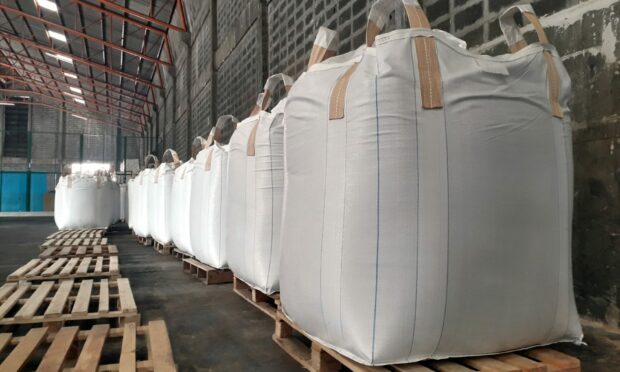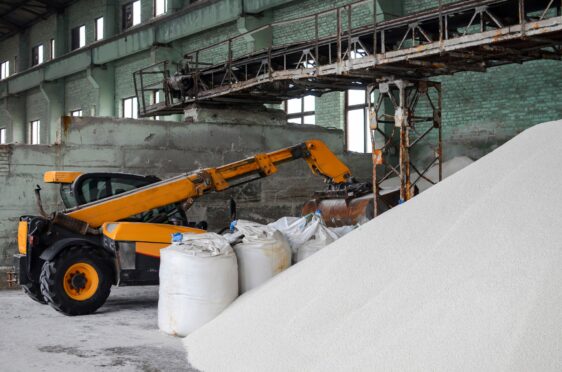Soaring fertiliser prices and scarcity of supplies have prompted industry leaders to look ahead to the implications for next season.
This week saw quotes of £995/tonne for ammonium nitrate delivered to Angus and urea trading out of the Humber at over £900/tonne, while prices continue to rise by the day.
Several continental suppliers are restricting output due to high gas prices and traders say that even if fertiliser can be located, it is now “almost impossible” to obtain shipping.
Most arable farmers have stocks bought for this season, but some silage producers are likely to have been caught out by the unprecedented rise in price and scarcity of stocks which could have a knock-on impact on overwintering beef and dairy livestock.
The UK has only one functioning ammonium nitrate (AN) plant, operated by CF Fertilisers at Billingham while the company’s Ince facility remains mothballed.
Insiders say the plant has an annual capacity of 600,000 tonnes if operating at full production, but the UK’s annual AN requirement is 1.5m tonnes.
Scottish Agronomy executive director, Eric Anderson said: “As things stand that means we would need to import 900,000 tonnes of AN, but in Europe manufacturers in Lithuania and Poland have already ringfenced production and aren’t exporting until they have met national demand.
“Yara use hydroelectricity for production in Norway but in Holland they use gas.
“The take home message is that the UK may well have to switch a significant proportion of nitrogenous fertiliser from AN to urea – and that will take some planning.”
Joe Gilbertson, head of fertiliser at the Agricultural Industries Confederation (AIC), confirmed his industry and farmers’ lobbying organisations have meetings scheduled with Defra this week to discuss the crisis.
He said: “National food security is at stake, because if farmers can’t access or afford fertiliser then cropping levels and yields will be affected and that will filter through to customers shopping baskets and on this occasion supermarkets probably won’t be able to source that food from abroad either because this is a global problem.”
Mr Gilbertson said switching to urea instead of AN could be problematic as governments are already looking to restrict emissions from urea.
“Urea emits ammonia which causes major problems from an environmental point of view and a recent industry consultation contained an option to ban urea,” he said.
“We’ve lobbied hard against that along with the farming unions, and we were awaiting an announcement from government this week which has clearly been delayed.
“They may be looking to introduce a proposal where farmers will be required to restrict the use of urea to certain times of the year along with an inhibitor to reduce air pollution issues. That would affect the dynamic.”


